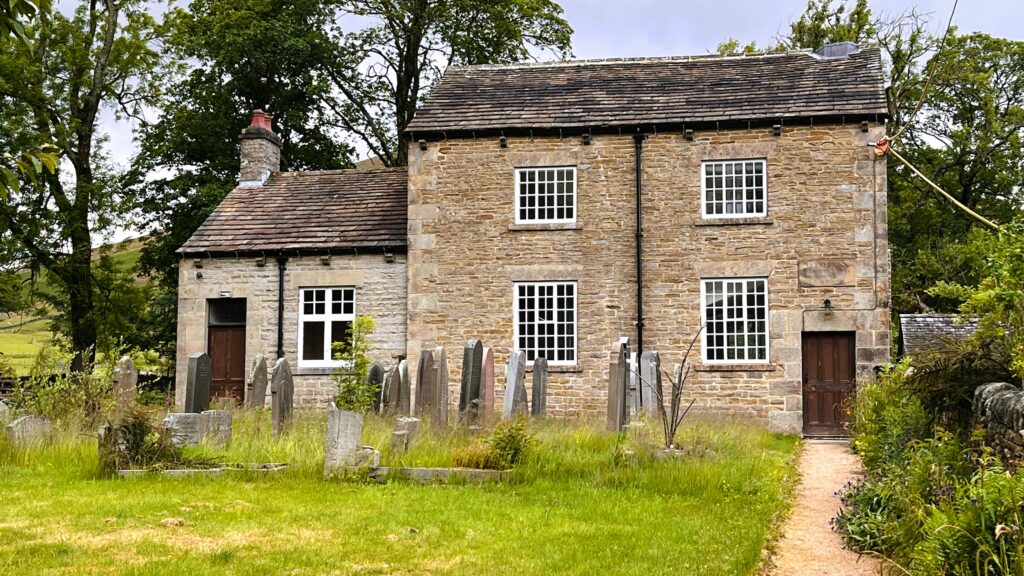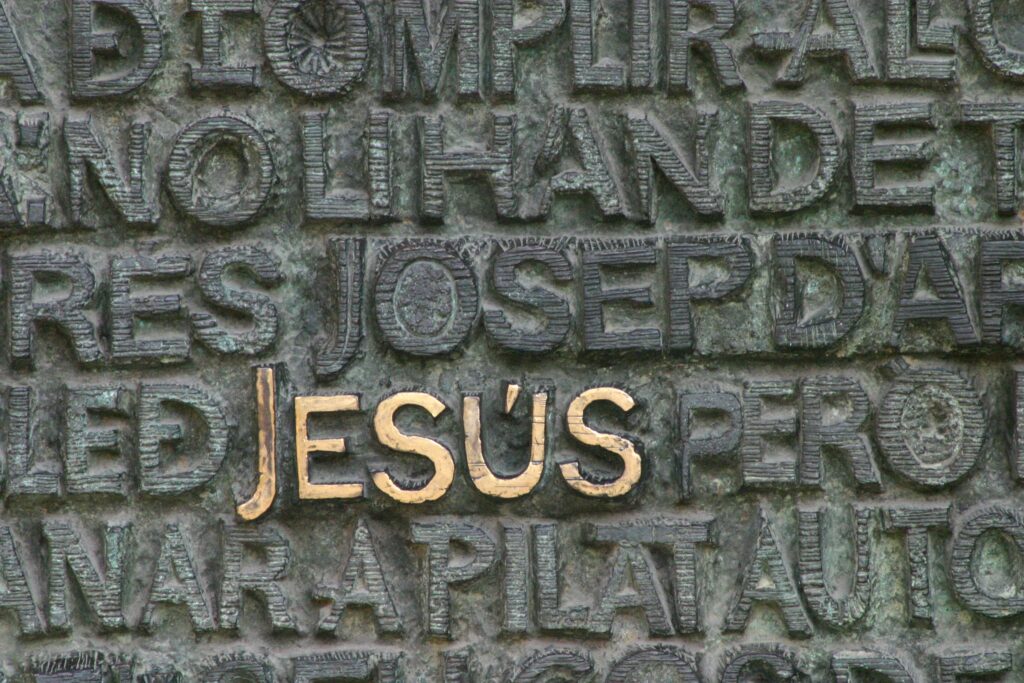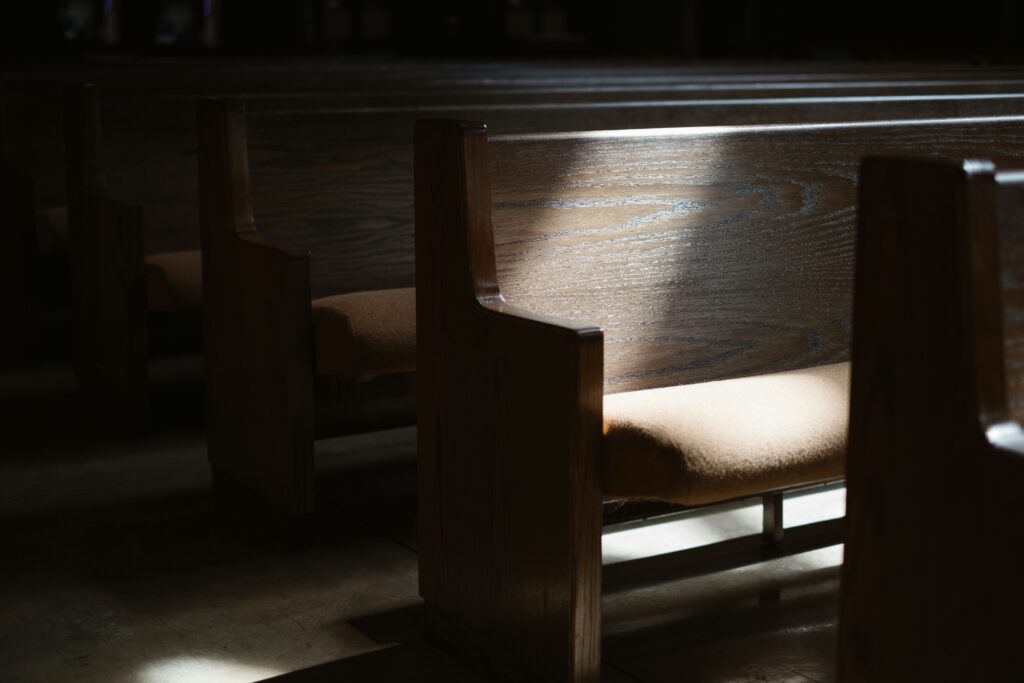I Am Who The I AM Says I Am (Part 4) by Dave Smith

Finally, to the chapter of our Worldview story that Wesleyans can make the most profound contribution, “What is the solution?” What is our Soteriology and Eschatology narrative?
Understanding Eschatology: A New Heaven and a New Earth
In Good biblical fashion, may I address the last question first? Eschatology. As you read the end of the Story; Rev 21-22, we discover that it’s a precise bookend to that of our orienting story in Genesis 1-2. It is a glorious reuniting of Heaven and Earth as ONE. The new heaven and the New Earth COME HERE. Doesn’t that just fly in the face of most evangelical theology, which is commonly dispensational at heart. They want to be raptured to heaven and then have the “evil-infested” earth burned. But listen to Revelation 21:1-4 and then 22:1-5:
21 Then I saw “a new heaven and a new earth,” for the first heaven and the first earth had passed away, and there was no longer any sea. 2 I saw the Holy City, the new Jerusalem, coming down out of heaven from God, prepared as a bride beautifully dressed for her husband. 3 And I heard a loud voice from the throne saying, “Look! God’s dwelling place is now among the people, and he will dwell with them. They will be his people, and God himself will be with them and be their God. 4 ‘He will wipe every tear from their eyes. There will be no more death’ or mourning or crying or pain, for the old order of things has passed away.”
22 Then the angel showed me the river of the water of life, as clear as crystal, flowing from the throne of God and of the Lamb2 down the middle of the great street of the city. On each side of the river stood the tree of life, bearing twelve crops of fruit, yielding its fruit every month. And the leaves of the tree are for the healing of the nations. 3 No longer will there be any curse. The throne of God and of the Lamb will be in the city, and his servants will serve him. 4 They will see his face, and his name will be on their foreheads. 5 There will be no more night. They will not need the light of a lamp or the light of the sun, for the Lord God will give them light. And they will reign for ever and ever.
Full removal of the curse and restoration for us to rule in a place which re-connects heaven and earth. Yes, Eden-like but with one major difference: there is no longer an adversary. God’s good creation is now gloriously re-ordered; our role is re-established under the reign of God and with humanity as His co-regents. The end of our compelling story echoes its similar beginning. But now, God’s “good” has come in its fullness.
With God’s revelation of his full story, what is the full solution to the problem? What is the Good and the beautiful story of redemption?
Moving Beyond Conversion: Embracing Discipleship
Regarding our salvation story, we MUST take the spiritual high ground. We cannot settle for the generic evangelical bumper sticker that reads; “I may not be perfect, but I am forgiven.” Forgiveness of sins cannot be our primary metric!
Otherwise, we functionally demote “holiness” to be mere optional equipment in a Christian’s life. We must declare to all who will listen; one cannot remain a mere “convert” as a Wesleyan and be satisfied. John Wesley says, “in describing our main doctrines, which are three; that of repentance, of faith, and holiness. The first of these we account as the porch of religion (repentance); the next the door (faith), the third is religion itself (holiness). We cannot permit the message we tell to settle for second best in the Kingdom. Otherwise, we offer “another Gospel” than what Jesus or Paul proclaimed. Remember Paul’s stern warning in Galatians 1:6:
6 I am astonished that you are so quickly deserting the one who called you to live in the grace of Christ and are turning to a different gospel – 7which is really no gospel at all.”
Let’s protest when we hear someone reduce the gospel to this question, “What is the least I need to do to get to heaven?”
Let’s stop answering people’s hunger-for-all-God-has-for-us with a less than nourishing story of the “Roman’s Road.”
Let’s stop helping people “make decisions for Jesus” and instead come alongside the Holy Spirit as He wants nothing less than to “make disciples.”
Let’s resist making “conversion” the mission of our Churches. And yes, our primary metric for success. For when we do this, we theologically and practically separate conversion from transformation; making Discipleship a spiritual add-on.
Let’s start using the language of “Initial sanctification” and “new birth” instead of mere conversion. For “Initial sanctification” and “new birth” both assume growth in the direction of completeness, maturity, wholeness, and full restoration. Moreover, both terms assume intentional spiritual parenting by a disciple-maker. Let’s make sure that Salvation and Ecclesiology co-habit the same sacred place in a Wesleyan Story.
While we are at it; let’s abandon the “widely accepted concept that we humans can choose to accept Christ only because we need him as Savior and we have the right to postpone our obedience to Him as Lord.” (AW Tozer, I Call It Heresy, p1.) This is often stated “I accept Jesus as my savior. I have just not made Him my Lord.” I humbly submit, that is heresy. For it starts from a completely unbiblical definition of repentance. Repentance explicitly has a turning towards the very voice of the One who created me and assumes my obedient re-alignment to His mind and His will. Genuine Repentance never assumes one can be saved today and put off obedience until tomorrow.
Once again, our metrics may be an underlying factor in the problem. We are a people who fully embrace evangelism. It’s the air we breathe. Therefore, in the excitement of someone sincerely seeking Jesus, we may declare them forgiven when in actuality, we may witness them encountering the “prevenient grace” of God; not His “saving grace.” Rather than guiding them to full repentance and re-orient their lives to fully count the cost; we instead take the “shorter way” and hastily declare them forgiven. Our evangelistic fervor of leaning into the “shorter way” of Salvation may arise from the revivalist-camp meeting strain in our Wesleyan DNA. Let’s call this “Phoebe Palmer made new.”
May I suggest; the Holy Spirit makes a disciple rather than a “person makes a decision.” This shorter way to Jesus may not always have lasting results. For we also have clear metrics to see how wide open our churches back doors really are. People are looking for life change and the possibility of being made “whole” as their hope in this world. Yet in our rush to spiritual judgment, we offer them “sins forgiven and heaven as their home in the next world.” Surprisingly, in Wesley’s journal, we find that people attending his class meetings take an average 2.3 years being nurtured in the faith “before repenting and becoming Christ followers.” (Hal Knight, John Wesley: Optimist of Grace, p. 53).
The Importance of Commitment in Wesleyan Societies
I know many of you are aware that wherever John Wesley rode as he was discipling his lay-preachers and Societies (let’s say he was serving as a surrogate DS), his Societies became smaller. He asked people to leave who did not take their commitment to their societies seriously. People who did not attend Class meeting with strict regularity were not admitted to Society Meetings. To put this in modern terms, Wesley believed that folks who are not part of the full solution are part of the future problem. Our today has become that prophetic reality.
Story of Transformation
A transformed life and freedom from sin and shame is the most compelling story ever told. Let’s tell THAT story. Let’s LIVE that story. Let’s reflect the Imago Dei and our hope and hunger for holiness to family, friends, even to those who are watching our spiritual walk that we are unaware of.
Let’s make certain that HIS story of the world is far and away the most compelling of all. Others may live, for the time being, by another narrative. But they really want our story to be the REAL one.
So, is there any real downside if we lower the bar on our soteriological story and make it generically evangelical?
Let’s confess that one of the reasons for the “rise of the nones” over the last 40 years is that we fail to offer them a radically transformed life as the Christian norm. Our culture has so many people who are desperate to have their lives redeemed from the trauma of this present age and to experience new Creation. Yet, as we continue to embrace our attractional church model, we want them to feel “comfortable in church.” We place no real expectations on them to change. Low lights, anonymity, and no commitment. People who come to Church for true spiritual help and personal healing are leaving in droves. Why? We are offering them “half a gospel.”
I am hard pressed to find a biblical model of Sunday morning “comfort gatherings” Biblically, the Church is to be a Kingdom of priests who stand between a Holy God and the people for whom He seeks. Practically, no one should feel comfortable in a holy place. Reverent? Yes. Awe and wonder. Most assuredly. We are to be a temple of the Lord who connects heaven and earth. Sunday morning should be a sacred place where no one enters without first seeking God’s means to forgive us of our sins and to cleanse us of all unrighteousness. (1 John 1:9). Our churches should be filled with Spirit-enabled worship, word-centered teaching, sacramental grace, and an expectation that God and God alone can make us “as Christ.” Most of all, may this never be limited by squeezing this into a 90-minute window on a Sunday morning. May every minute of every day be us serving as living compasses pointing others towards the New-Life giving Jesus.
This is part 4 of a five part article outlining a Wesleyan Anthropology arising from a Biblical Worldview. Check out Part 1, Part 2, and Part 3. Originally an oral presentation for the Wesleyan Church, it has been revised and updated for a broader Wesleyan Methodist audience.
Subscribe
Get articles about mission, evangelism, leadership, discipleship and prayer delivered directly to your inbox – for free






